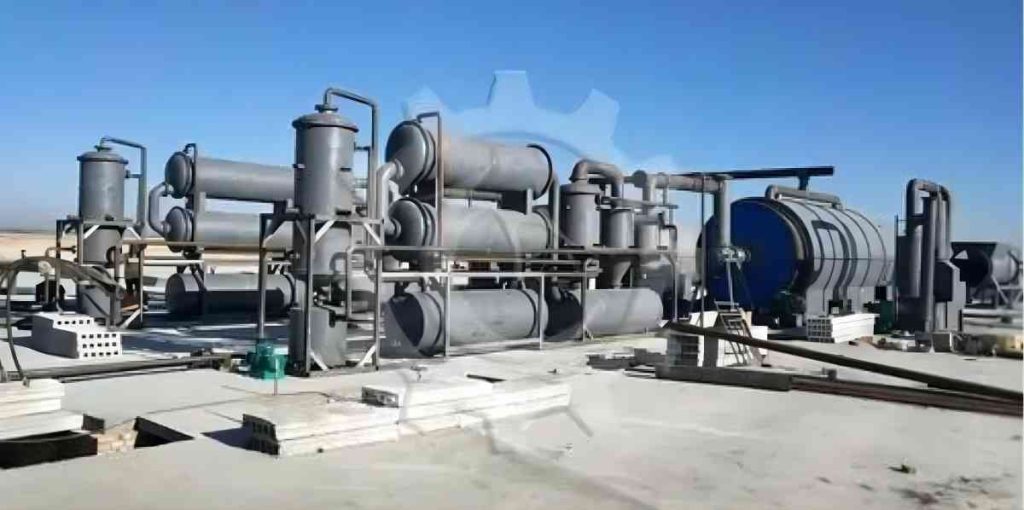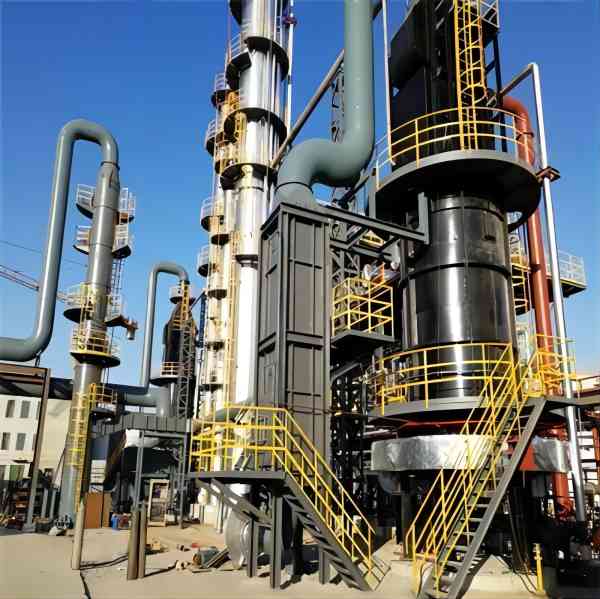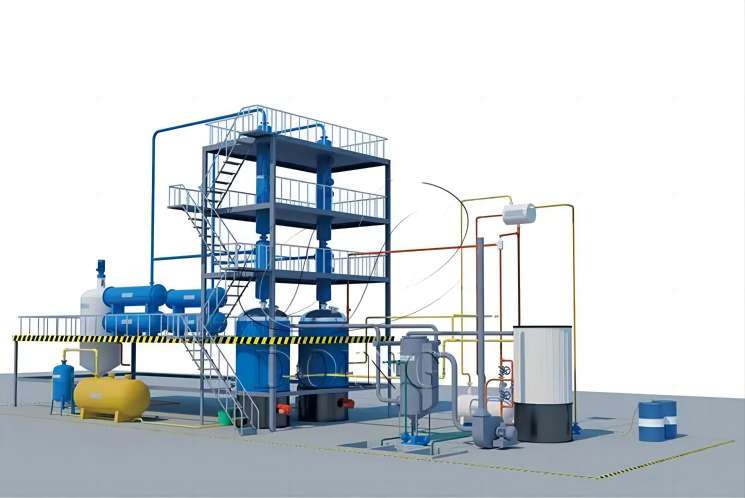Waste Oil Recycling and Refining: A Guide to Proper Disposal and Management
Waste oil is defined as petroleum-based oil that has been used and is no longer fit for its original application. It can be obtained from different sources such as automotive, trucks, machinery, and industrial equipment. Waste oil manifests as a hazardous waste and, if not properly disposed of, can cause environmental damage that is hard to reverse.
The environmental impact of waste oil could go as far as to affect the whole planet. Contamination of soil and water due to the dumping or improper waste oil disposal can lead to the extinction of flora and fauna. Waterways, thus, become polluted and unsafe for drinking, swimming, and fishing. Furthermore, waste oil can emit toxic particles, which, when combined with air pollutants, create smog and intensify air pollution problems in the vicinity.
On the brighter side, waste oil can be disposed of in a safe and environmentally friendly manner through recycling. Following the right procedure not only helps but also shields the environment and gives our communities a sense of safety.

Waste Oil Disposal
The two primary methods for disposing of waste oil are recycling and incineration. Recycling is considered the best method because it gives the oil back to the market and keeps it out of the environment. On the other hand, incineration is regarded as a less favorable method since it contributes to air pollution via the emission of toxic gases.
Improper disposal of waste oil
The illegal and most detrimental way of getting rid of waste oil is to either pour it onto the ground or let it flow into the storm drain system. Such a practice can lead to the contamination of land and water as well as significant legal repercussions. Mixing waste oil with other liquids, such as petrol or anti-freeze, would be another form of improper disposal. This makes the oil harder to recycle and increases the chances of fire or explosion.
Safe disposal practices
Generally, there are some safe ways through which you can dispose of waste oil. It depends on the quantity you have and where you live.
- Recycling: This is the most preferred way to dispose of waste oil. There are various waste oil recycling stations located all over the United States. A waste oil recycling center near you can be located by searching on the internet or by contacting your local authorities.
- Incineration: If you have enough waste oil at hand, you might have to incinerate the material. However, you have to do this at an incinerator only.
- Landfilling: Landfills are suitable methods for the disposal of waste oil, but only if the oil is packaged appropriately. It should be sealed in an appropriately designed packaging material that protects against leakage.
Where can I get rid of waste oil?
When it comes to waste oil that has to be thrown away, there are different places available to get rid of it properly.
- Waste oil recycling centers: Giving in the waste oil will either be a free or a small charge service in the case of these centers. They will then make it into new products, such as fuel and lubricants, and so on, through recycling.
- Auto repair shops: Waste oil will be accepted by most of the auto repair shops either for free or at a nominal fee. The oil will then be either recycled or disposed of correctly.
- Local government waste disposal facilities: Waste oil will be accepted at some local government waste disposal facilities. You may reach out to your local government to know whether or not they provide this service.

Waste Oil Recycling
Waste oil recycling is an innovative process to produce clean new products using waste oils. There are several methods to achieve this goal; these include re-refining, pyrolysis, and hydrotreating.
- Re-refining: Re-refining is the prevalent method for waste oil recycling. The procedure integrates cleaning and filtering to eliminate the impurities present in the oil. The resulting clean oil then receives blending with virgin oil, giving rise to a variety of products, including motor oil, hydraulic fluid, and gear oil, among others.
- Pyrolysis: Pyrolysis is a method that facilitates the conversion of waste oil into fuel, plastic, and chemical by-products. Basically, it decomposes the entire waste oil feedstock into its elemental constituents.
- Hydrotreating: Hydrotreating is a patented process of hydrogenation, whereby hydrogen is used to purge the waste oil of impurities. The resultant oil can be further processed into fuel or lubricant, etc.
The benefits of waste oil recycling
There are many benefits to recycling waste oil. Recycling helps to protect the environment by preventing waste oil from entering the environment. It also conserves natural resources, as it reduces the need to produce virgin oil. Recycling waste oil also creates jobs and stimulates the economy.
Waste Oil Refinery
A waste oil refinery is a plant where the utilized oil is turned into new products. Various techniques are used for this conversion, like re-refining, pyrolysis, and hydrotreating.
The process of waste oil refining
The process of waste oil refining can vary depending on the method used, but there are some common steps involved.
- Collection: The first step is to collect the waste oil. This can be done from a variety of sources, such as auto repair shops, industrial facilities, and even individual households.
- Preparation: Once the waste oil has been collected, it must be prepared for refining. This involves removing any contaminants, such as water, dirt, and metal shavings.
- Refining: The next step is to refine the waste oil. This can be done through a variety of methods, such as re-refining, pyrolysis, or hydrotreating.
- Purification: After the waste oil has been refined, it must be purified. This involves removing any remaining impurities, such as sulfur and nitrogen compounds.
- Distribution: Once the waste oil has been purified, it is ready to be distributed. This can be done to businesses or individuals who need it for their own use.
The products of waste oil refining
Waste oil refining’s products differ according to the process used. Nevertheless, a few typical products are listed below:
- Fuel: The waste oil can be transformed into fuel, which is applicable for cars, generators, and any other machinery.
- Lubricants: The waste oil refining process can result in the production of lubricants that are suitable for the lubrication of machines and equipment.
- Chemicals: Waste oil can be transformed through refining into chemicals that find usage in a large number of items, including plastics, paints, and fertilizers.

The benefits of waste oil refining
There are many benefits to waste oil refining. Refining waste oil helps to protect the environment by preventing it from entering the environment. It also conserves natural resources, as it reduces the need to produce virgin oil. Refining waste oil also creates jobs and stimulates the economy.
The future of waste oil management
The waste oil management industry has a bright future ahead. The recycling of oil is seen as a process that converts waste into money-making products; thus, the industry of waste oil refining is growing stronger and more important. Besides, with the still-unfolding innovations, waste oil refining might be made less energy-consuming and greener than ever over the next few years.
Conclusion
Waste oil is one of those materials that we can continue to recycle and even transform into something new. Environmental protection and community safety are indeed opposite sides of the same coin, where we can help by following proper disposal and recycling methods. Waste oil refining is a futuristic solution that could ameliorate the environment by using less oil. Eventually, this will be the case due to the ever-increasing demand for recycled products. Thus, the industry of waste oil refining will become more significant.







